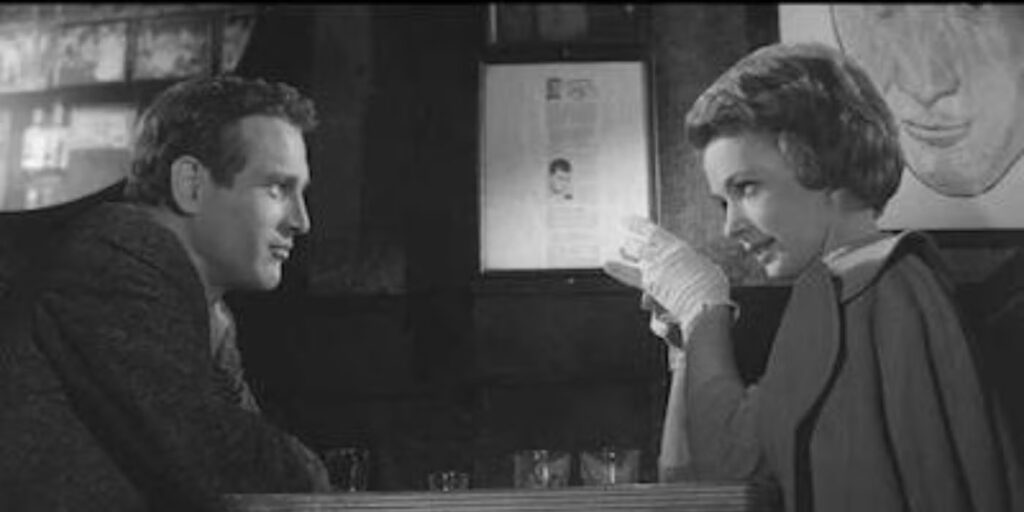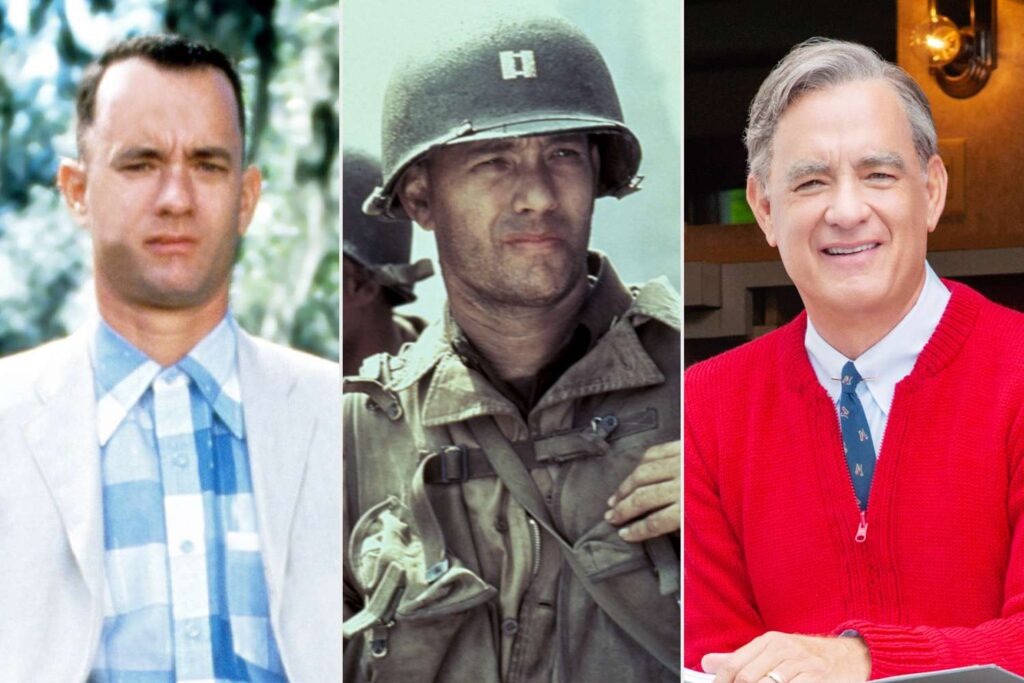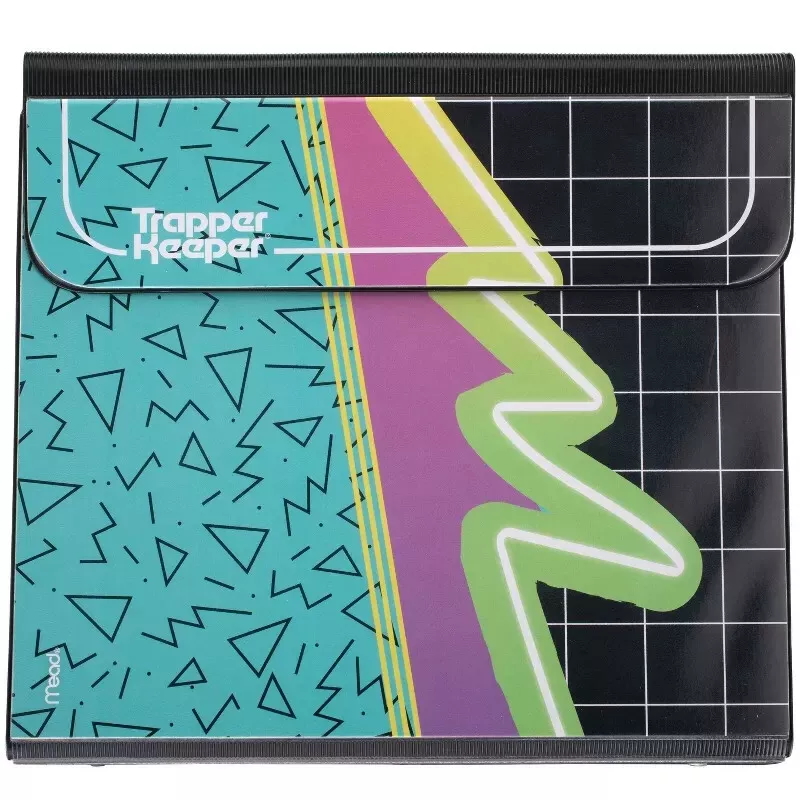Once, while traveling alone to see family, I saw Tom Hanks at the airport. He was also alone, just walking with a coffee, and it was definitely him.
I love movies, and I even love most of Tom Hanks’s, so I was flooded with an urge to run up to him and ask what he was doing, where he was headed, and maybe what movie he was working on.
But the moment passed. I was too shy, and he kept walking, and I looked down. By the time I looked back up, I’d lost him to the terminal.
After boarding and finding my seat on the plane, I began beating myself up for my cowardice. I should’ve been brave and struck up a conversation with him or something. After all, Tom Hanks isn’t an alien or a god; he’s just a human being, and I’m a nice guy, and there’s no reason we couldn’t have had a perfectly normal conversation. Hell, maybe he’s lonely.
Maybe it’s like when there’s a car crash on the highway and everyone assumes someone else has already called 911, so no one does, resulting in no one coming to help the people who need it. Maybe Tom Hanks is so famous that most people are afraid to speak to him because they assume everyone else is always approaching him, resulting in him never having anyone to talk to.
Maybe what Tom Hanks longs for more than anything is a simple, friendly conversation with a fellow human being, assuming the person didn’t overstay their welcome, and since it was me, I knew I wouldn’t have. I would have bailed at even the slightest hint of his discomfort or annoyance. I should have risked it, but I didn’t, and now he’s gone, and when I tell people about seeing him, they’ll only ask if I went up and asked him for his autograph or something, and I’ll have to say no. I’ll have to look them in the eye and say nothing remotely interesting happened.
My thoughts circled thusly as the plane filled with passengers. To try and take my mind off my missed opportunity, I searched the in-flight movie selections for a Tom Hanks movie, but none were available.
That’s when I saw him again—Tom Hanks, the real Tom Hanks—walking down the aisle of my own plane, coming right toward me.
I had a second chance. Sure, it would be awkward. There were people behind him who wouldn’t have wanted to be delayed by our conversation, and I’m sure Hanks himself would’ve hated to be the one whose detainment increased the annoyance of those behind him. But maybe it was worth it. I’d just convinced myself I’d missed a big opportunity for me and for Tom Hanks by not engaging him earlier. What if the concerns about holding up the line of boarding passengers was just another excuse to chicken out?
I quickly tried to think of something better to say than simply asking him what movie he was making next, hoping I could come up with something that would seem like a valid item of conversation between any two passengers—maybe something practical and related to flying, like a question about frequent-flier miles or seating assignments, so the people behind wouldn’t feel like I was just fawning over a celebrity—but I couldn’t think of anything, and once again, and as soon as I’d seen him, he was gone, having walked past my row, into the depths of the plane.
You can imagine how my self-flagellation escalated in the next few moments, realizing I’d missed the same opportunity twice in a row. I wondered how I’d ever gotten anything done in my life at all, given my obvious predilection toward paralysis at the moment when the hand of fortune presented me with an opportunity to do something actually memorable and interesting. Had I lived my life in such a way as to specifically avoid having to do anything memorable? Was there anything memorable about me at all? It was going to be a long flight . . .
Or so I thought . . . until Tom Hanks sat down beside me, having returned from placing a bag of his in the overhead compartment two rows behind.
He didn’t even ask me if he had the right seat. He just sat down, and a moment after I thought my chance to prove something vaguely significant about my life by interacting with him proactively had flown me by, here he was a third time. Inches from me. I could smell his musk. I had the measure of the man in ways few do. Now there would be no excuse for me not to act.
The flight was three-and-a-half hours long. I had that long to come up with something to say to him, and I already suspected that a simple “Hello” and “I’m a big fan of your movies” would be sufficient. For me, there was no better feeling than to already have a good plan and then, on top of it, to have tons of time to come up with a better one.
Ironically, due to Tom Hanks’s own proactivity, I never even got the chance.
As soon as he saw me looking at him in a way that told him I recognized him, he smiled warmly and asked me if I’d seen his latest movie. I gave my honest answer—I hadn’t—though I did assure him that I’d seen most, if not all, of his other movies, and in the theater, too.
“It’s just that I haven’t been to the theater in a while,” I explained. “Just busy, I guess.”
He absolved me with a wave and told me not to worry about it whatsoever. Then he asked me if I wanted to see it.
“Your movie? Sure. I’ll see it as soon as I get a chance.”
“No,” he said. “Do you want to see it right now?”
I must have looked stunned.
“I’ve got the final cut saved right here on my phone.” He lifted it. “Want to watch it with me?”
“You . . . want me . . . to watch . . . your movie . . . with you . . . right now . . . on this flight?”
“Only if you want to.”
“Oh my God. I would love to.”
We watched the whole thing.
I’m not a movie critic. I neither loved nor hated it. It passed the time, and it made me think, if only a little. Maybe it made me feel a little more than it made me think. But it was unquestionably thrilling to watch it on the phone of its star, with that star right beside me watching it with me. They say movies are best experienced in the theater, and until today I would have agreed. You’ve never really watched a movie until you’ve watched it with the star, almost touching, as they hold up the screen, tilting it toward you slightly so that you get the best angle, as if their whole performance is personal and meant for you.
After the movie ended, I still hadn’t gotten over the coincidence of Tom Hanks himself taking the seat next to mine on a flight and showing me his latest project.
Is this the greatest day of my life, I wondered, or just the oddest? Or is something exactly this odd simply something everyone experiences eventually? Lots of people have strange celebrity encounter stories. Maybe they’re just statistically destined to happen every now and again, even to people like me?
Just as I wondered this, I awoke—alone—in a comfortable bed in an extravagantly appointed apartment.
The transition was so jarring, it made the comfort of the bed almost feel like a trap. Where was I?
I went instinctively to the bathroom, and looking in the mirror, I saw that I wasn’t me at all, I was Tom Hanks—the real Tom Hanks himself.
Of course the apartment was mine. This was where I lived when I was on the East Coast.
I took a piss and brushed my teeth and thought about my dream and what it was about—me fantasizing about being someone who was afraid to meet me, and then thrilled to meet me, and even more thrilled to watch me act in a movie with me beside them, holding up the little screen. Whatever it had meant, it wasn’t flattering. Was I too obsessed with my own career? My own self-image? Did I not have friends? Real friends that weren’t business partners or filmmaking collaborators? Did I secretly pine for random people to approach me and tell me they love my movies? After a career of playing different characters—from the comedic to the absurd, from the ordinary to the neurotic, from the stoic and heroic to the doddering and sad—was I anyone at all?
And after waking, had the fact that I hadn’t even remembered who I was until I saw my reflection in the bathroom mirror meant that I was no one at all until I was being looked at?
And were the only eyes I trusted enough to tell me who I was my own?
Or was my slippery self simply proof of my talent as an actor?
With no one around, with no prestige attached, with no consistent sense of self to accept it, was this moment of liminal amnesia the only awards ceremony that mattered?
As I finished brushing my teeth, I shook all these thoughts from my head and left them swirling away down the drain with the suds of toothpaste. I went to the kitchen and brewed some coffee. I sliced open a grapefruit, poured vanilla granola into a bowl of plain yogurt, and opened my laptop. I had several emails to review from various producers and agents regarding the project that lay before me.
By the time the coffee finished brewing, the dream was more or less forgotten. First, you become someone else; then you become yourself again, only to find you’ve forgotten who you are; then you finally forget that you forgot, and you’re yourself—I can think of no better distillation than this of the actor’s miraculous burden.
The upcoming movie was particularly exciting to me. Even though production was months out, the bulk of financing had already fallen in place, per the first email I read.
The script, too, which was already tight, was getting tighter, and the theme it explored was something I had no small amount of personal experience with. Best of all, the character I was to play was unlike anyone I’d ever played before.




